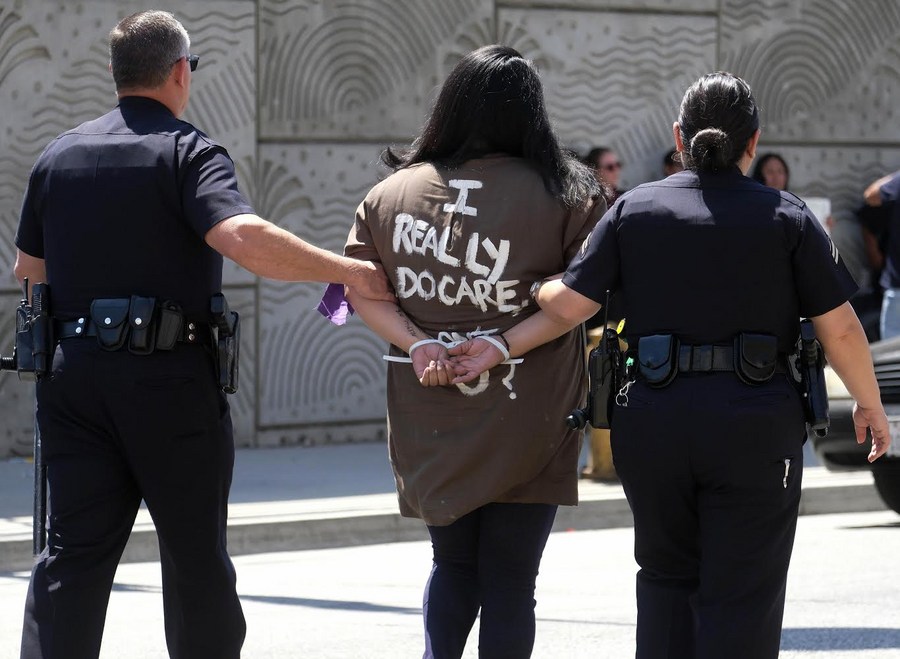Jails in U.S. South face complex challenges of COVID-19 prevention: article

A protester is taken away in front of a detention center of U.S. Immigration and Customs Enforcement in downtown Los Angeles, the United States, on July 2, 2018. (Xinhua/Zhao Hanrong)
Jails are often operated by county agencies, unlike prisons, and have no centralized system to report rates of infection or vaccination among their populations and staff.
NEW YORK, Nov. 16 (Xinhua) -- Since the start of the pandemic, people in U.S. jails have faced an inequitably high risk of SARS-CoV-2 infection -- overcrowding and lack of hygiene supplies have left jail populations particularly vulnerable to outbreaks, while frequent population turnover has made it difficult to prevent and track the spread of new variants, said an article published early this week.
"In addition, racial incarceration disparities and frequent COVID-19 cases in jails further contribute to longstanding racial health inequities," said the article on the website of the University of North Carolina Gillings School of Global Public Health.
These challenges are compounded by unique public health issues in the southeastern United States, where COVID-19 rates have been higher and vaccination rates have been lower than in other parts of the country, it noted.
"Jails are often operated by county agencies, unlike prisons, and have no centralized system to report rates of infection or vaccination among their populations and staff," it said.
This makes it extremely difficult for researchers and public health agencies to understand how the pandemic is impacting jails and create data-driven response strategies, it added.
Photos
Related Stories
- U.S. crypto investors call for more regulation as FTX fiasco dents confidence
- U.S. retail sales rise despite surging inflation
- Study finds sharp increase in emergency room visits with suicidal thoughts among kids: CNN
- Size of U.S. middle class shrinks: media
- Xi-Biden meeting ahead of G20 summit in Indonesia
Copyright © 2022 People's Daily Online. All Rights Reserved.









